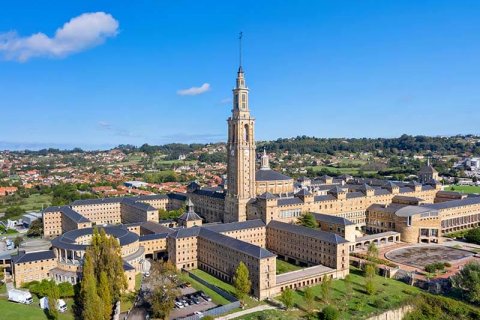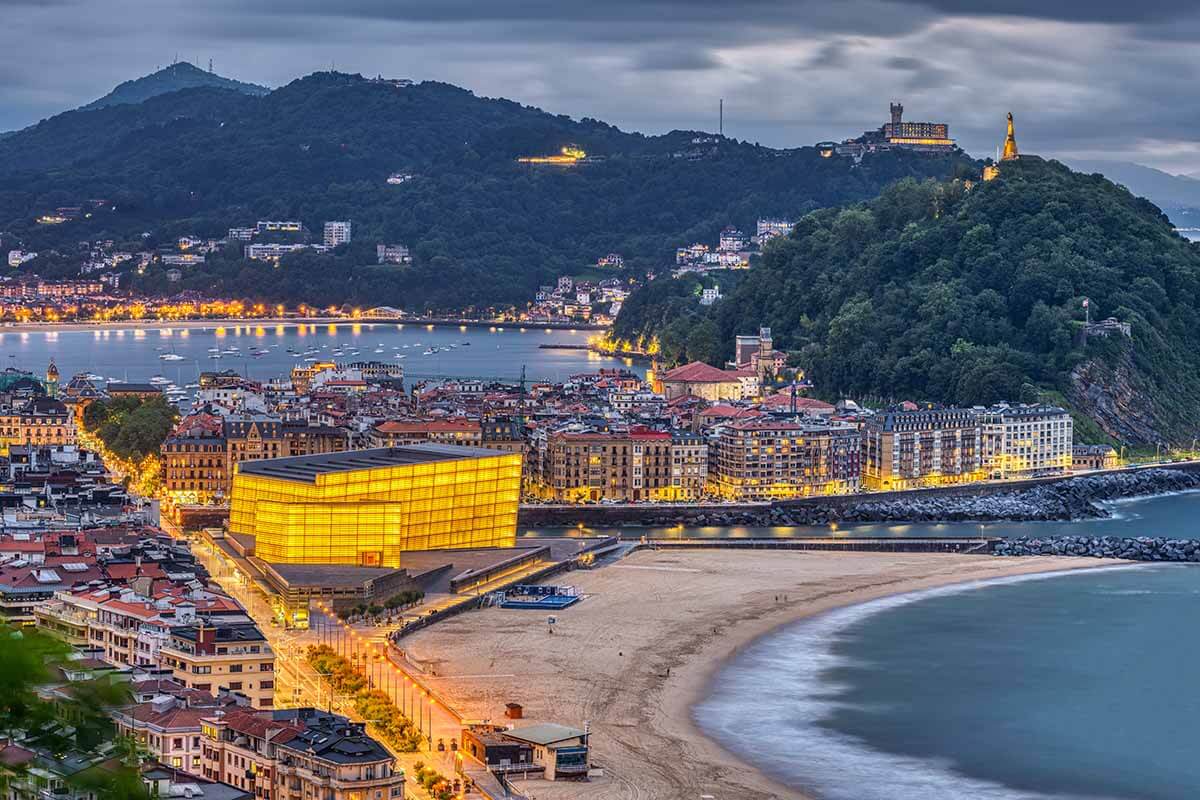
Education in Spain is in demand by students all over the world. This is because of its high quality, affordable fees, the bilingual system, and the opportunity to move to Spain permanently. The interest in Spain’s education system is also promoted by its good trade relations with many other countries, its favorable climate, high quality of life, a growing interest in buying Spanish housing, and the global demand for being fluent in Spanish.
What is Spain’s education system like? Can foreigners study in Spain? How do you get a study visa? Where do international students live in Spain? What is the cost of studying in Spain?
Next, we’ll answer these and other questions about the Kingdom of Spain’s education system.
Content:
- Education system
- Preschool education in Spain
- Schools in Spain
- The school education structure
- Secondary education
- Foreign children in Spanish schools
- Educational rights of immigrant children in Spain
- How to get migrant minors into school
- Vocational education in Spain
- Admission to university and higher education
- Study visa
- Accommodation for foreign students in Spain
- Free places in Spanish universities for foreign students
- Popular universities
- The cost of studying in Spain
- The cost of a student visa in Spain
- Academic year in Spain
- We’ll help you find real estate in Spain for residence and study
Education system
The national and regional governments of Spain’s 17 autonomous communities support the Spanish education system. Primary and secondary education is compulsory and free for all children from 6 to 16 years. After they get a secondary education, students get a certificate that allows them to study at a higher education institution if they want.
The education system in Spain is divided into 4 stages. 2 are optional ‒ preschool and higher secondary education, and the other 2 are mandatory ‒ primary and secondary education.

Preschool education in Spain
Preschool education is the first stage of Spanish education for children from birth to 5 years. It is voluntary and has 2 cycles:
- from 0 to 2 years;
- from 3 to 5 years.
Each of these cycles consists of 3 school courses.
State and regional education authorities set out guidelines for preschool education.
The first cycle of preschool education or the level of the standardized International Classification of Education 010, is the responsibility of the councils and departments of education in autonomous communities except for Galicia where the responsibility also lies with the Ministry of Social Policy.
The second cycle corresponds to the International Standard Classification of Education (CINE) and is regulated by the councils and departments of education in autonomous communities. In Ceuta and Melilla, these 2 cycles are below in ranking of the Ministry of Education and Vocational Training.
The 2 preschool education cycles can be taught separately or standalone.
Besides preschool education in Spain, there’s also home education (from 0 to 2 years) in 2 autonomous communities: Madrid and Navarre.
Schools in Spain
There are 3 types of Spanish schools: public, private and concertado (run privately with some state funding).
The school education structure
Primary education is compulsory in Spain for children aged 6 to 12. It has 3 cycles, each lasting 2 years. This educational stage is free and students study general subjects like languages, mathematics, literature, natural and social sciences, and art. The education system in Spanish schools offers a wide range of subjects to develop students’ interests.
Students are tested in each subject. The highest rating is SB and the lowest is IN. If students don’t receive the necessary grades/results at the end of each academic year, they repeat the year.
Secondary education
Compulsory secondary education is the third stage of the Spanish education system. It’s designed for students aged 12 to 16. It’s taught in public, private, and government-funded schools. It has 2 cycles lasting 2 years each, namely 12-14 and 14-16 years. So, compulsory secondary education in Spain ends at the age of 16.
Students in secondary school study the same subjects as in primary school but at a more advanced level (language, literature, mathematics, history, biology, and geography). They can also choose different subjects from music and foreign languages to sciences or arts.
Students who don’t get high enough scores at the end of a course will have to repeat it.
At the end of compulsory secondary education in Spain, students with good results receive a secondary education graduate degree and a certificate of education.
Foreign children in Spanish schools
If an immigrant child arrives in Spain, there are some regulations that their parents have to think about. One of the most important questions is how to send a child to a Spanish school?
Educational rights of immigrant children in Spain
The Spanish Constitution reflects the right of minors to receive basic education. This right is regulated by the Organic Law of July 3, 1985. It states that foreigners in Spain have the right to basic education to develop their personalities and prepare them for useful activities in society.
The law also says that migrants have the right to receive a higher level of education, depending on their abilities and vocation. They may not be discriminated against for their economic or social status or place of residence.
How to get migrant minors into school
The first thing a family with a school-age minor child should do is contact the offices of the city council or the school. They will explain the enrollment process to the family.
Parents will choose an educational institution with available space. This will depend on the number of students enrolled, the district, etc.
Registration documents for minors:
- identification documents of the father, mother, and child;
- parents’ NIE;
- 2 photos (3x4);
- medical book;
- residence certificate;
- a document confirming the child's previous level of achievement.

Vocational education in Spain
1. Vocational schools in Spain
Vocational education in Spain has 2 main types: secondary and higher.
Secondary specialized education (Grado Medio) is for 17 year-olds and prepares them for employment. At the end of the program, the graduate receives a diploma as a junior specialist. The program includes practical training.
The Grado Superior program promotes in-depth knowledge in different professional fields. Successfully completing the program allows students to study for a bachelor's degree in Spanish universities.
Vocational education (study cycles) in Spain allows students to study in several fields for 4 years. Students can get a secondary degree which provides basic training and lasts 2 years or they can get a higher degree after studying for 2 more years.
2. Higher secondary education
To get a bachelor's degree, young people aged 16 who have completed secondary education in Spain must complete a 2-year study and pass a final exam. This certification will allow students to continue their studies. After receiving a bachelor's degree, students can choose professional training or take entrance exams.
The training takes place in various fields like natural sciences, humanities, social sciences, art, etc.
Admission to university and higher education
The higher education system in Spain includes 76 universities, 45 of which are funded by the government. To enter a university in Spain, students must have a bachelor’s degree and pass entrance tests.
Higher education in Spain is attractive to Spanish students and many foreigners. Of the 1,600,000 students in higher education, about 195,000 international students study at Spanish universities. 56,892 of these are international students in mobility programs.
The education system in Spain is important for students with a high quality of education and gives them access to the labor market and world-famous degrees.
Requirements for foreigners to enter a university
The university admission process for international students depends on the following factors:
- previous place of study;
- academic degree;
- compliance with the requirements for university education in the country of origin.
International students who can apply for pre-registration for admission to the university:
- Citizens of a Member State of the European Union or a country with which Spain has agreements about education access as well as their origin’s university requirements.
- Students with a European Bachelor’s degree.
- Students with an international Bachelor’s degree.
Pre-registration requirements for admission to the University of Spain
- Know the admission procedure and have the right documents.
- The university needs accreditation of the education you’ve already received.
- Conducting Competency-specific tests (PCE) organized by UNED. You can apply for up to 6 subjects.
Students from non-EU countries must follow this:
- Approval for initial education for a Spanish bachelor's degree.
- Passing a Bachelor's Degree assessment for University Admission (EBAU) or Competency-specific tests (PCE).
Study visa
What's a student visa to Spain for?
A student visa to Spain allows students to study, be in a student exchange, or work as an unpaid intern for over 3 months. EU and Swiss citizens can study without visas.
There are different types of study visas valid for different periods. Students must apply to the Spanish Embassy or consulate and give the needed documents.
90-day permission
Students from countries that can enter Spain without a visa for up to 90 days may take a course without a student visa (if the course is less than 90 days long).
Those who come from countries not eligible for visa-free entry must apply for a Schengen student visa. To study in Spain, applications must be submitted to the Spanish Embassy or consulate in the student's country of origin.
Short-term student visa for 3 to 6 months
A short-term student visa allows students to access a course that lasts no more than 180 days.
Long-term student visa for more than 6 months
With long-term student visas, students can study for more than 6 months.
Students must also apply for a student green card at the immigration office within a month after arriving in Spain.
This type of visa needs more documents than a short-term one. Applicants must give a medical certificate and a certificate of no criminal record.
Documents to apply for a student visa in Spain
The list of documents needed to get a student visa in Spain is regulated by article 38 of the Rules on Foreigners and includes:
- student visa application forms completed;
- passport (valid until the end of the stay);
- identity card;
- current student ID;
- 2 last passport photos;
- letter of admission to a licensed full-time educational institution;
- payment of the fee;
- public or private health insurance;
- certificate of no criminal record;
- confirmation of funds to stay in the country.
Accommodation for foreign students in Spain
An advantage for foreign students is that real estate in Spain has many accommodation options for any budget.
You can easily search for housing by contacting real estate agencies in Spain.
Types of housing for foreign students in Spain
- Campus accommodation. These are ordinary rooms here and campus amenities (libraries, computer rooms, laboratories, sports venues, and cafes) are available to the public. You’ll be able to interact with other students.
- Living with a family is a popular option, especially with international students who don’t want to be alone, want to learn what family life is like in another country, and get acquainted with Spanish culture. Accommodation can include half board or full board (use of kitchen, laundry, etc.).
- University residences are hotel rooms or hotels sponsored by associations or religious foundations.
- Living together in an apartment. It’ll help foreign students find friends, gain new experiences, etc.
- Separate housing. International students living alone in an apartment are much freer but they get less experience to share in everyday life with their peers. As a rule, renting an apartment in Spain is not the cheapest but it’s the most popular option.
Free places in Spanish universities for foreign students
Students can study in Spain free of charge if they receive a scholarship from the government that encourages people to study.
Over the years, Spanish scholarships have helped over 1,000 students including Spanish and international students pursue their academic careers. A student can apply for a scholarship even if their financial situation is stable. Some of these scholarships cover tuition, accommodation, textbooks, and more.
List of Spanish scholarships for international students to study in Spain: University Scholarships of the Basque Government in Spain, Scholarships of the Barcelona Institute of Economics, Barcelona GSE Master, IFISC Mobility Scholarships, ESCAC Undergraduate Film Scholarship Program in Spain, Master's Scholarships for international students at the Institute of Neurobiology of Alicante in Spain, Santander Scholarships, Postdoctoral Scholarships for International applicants in Spain, international scholarships at the Institute of Science and Technology in Barcelona, UC3M scholarships for international students at the Carlos III University of Madrid in Spain, Ibero-American University Postgraduate Association.
Popular universities
According to the Forbes rating, the most popular universities in Spain are: University of Navarre, Complutense University of Madrid, University of Santiago de Compostela, Autonomous University of Madrid, University of Nebria, University of San Pablo (CEU), University of Salamanca, University of Seville, European University of Madrid, University of Almeria, Alfonso X El Sabio University, University of Carlos III in Madrid (UC3M).
The cost of studying in Spain
The cost of university education in Spain depends on things like the type of higher education institution (private or public), curriculum, number of program credits, location of the university, and the student’s nationality. In Spain, there are both public and private higher education institutions and the cost of studying in private is higher than in a public university.
The cost of a bachelor's degree in Spain
The average loan amount for a bachelor's degree in Spanish public universities can be 30 euro. As a rule, degrees have 60 ECTS credits per year, so the annual tuition is on average 1,800 euro.
Bachelor's degree studies last from 3 to 4 years so the total amount of credits can be from 180 to 240 ECTS (5,400-7,200 euro).
The cost of studying in Spain for international students from non-EU countries may be more than these costs.
The cost of a master's degree in Spain
The cost of a year-long master's degree in Spain is higher than a bachelor's degree. Master's degree studies last from 1 to 2 years. The average cost is 16-45 euro per loan. Masters in Spain have 60 ECTS credits per year (2,700 euro per year).
The cost of a doctoral degree in Spain
The average cost of a doctoral degree in Spain can be 55 euro per loan (the first year of study costs about 3,300 euro). Students usually focus on research and writing a dissertation. Students will also have to pay tuition and research costs, which are usually less and can amount to 600 euro per year.
The University of Barcelona (UB) charges about 400 euro for mentoring and dissertation evaluation. The cost of checking and defending a doctoral dissertation is 156.87 euro. The cost of a doctoral degree in Spain for international students from non-EU/EEA countries is higher than for national students or students from EU countries. The final cost will depend on the university.
The cost of a student visa in Spain
The cost of a student visa in Spain is also included in the cost of studying abroad. Students from countries outside the EU/EEA will need a student visa to study in Spain. US citizens don’t need a visa to study in Spain if the training period isn’t more than 6 months.
International students from non-EU countries planning to study in Spain for more than 6 months will have to apply for a student visa when entering the university.
The cost of a student visa in Spain:
For American students: 131 euro ($160).
For Canadian students: 80 euro ($98).
For students of other nationalities: 60 euro ($73).
Academic year in Spain
Classes in Spain begin on September 10-15.
The school year ends on the 20th of June.
Weekends and holidays: Christmas and Easter.
Non-study days at the regional level: October 11, December 7, March 1, and Educational Community Day.
Each province has different holidays.
The daily schedule at the primary school includes classes from 9:00 to 12:00, with a long lunch break until 15:00, then the study continues until 17:00.
In high school, classes start around 8:00 - 8:30 and end around 17:30.

We’ll help you find real estate in Spain for residence and study
Spain-Real.Estate specialists will help you find accommodation for a comfortable life in any area of Spain. Contact us right now and make your dreams come true!
